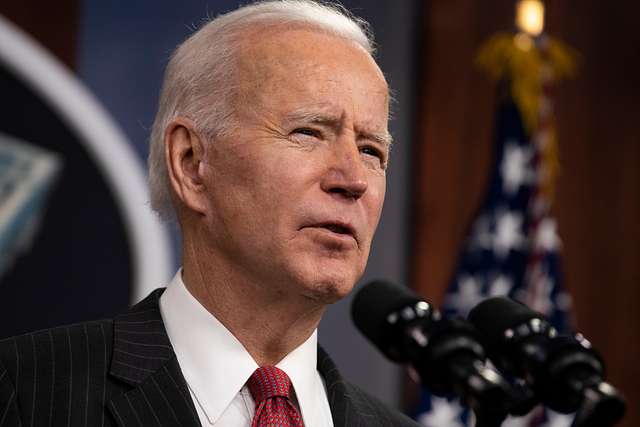On February 7th, 2023, US President Joe Biden spoke about plans to take on America’s burgeoning opioid crisis head-on, but opponents of the current administration have doubts about the efficacy of Biden’s proposals. To explain, the war on opioid addiction has ballooned into a staggering epidemic over the years, and the opioid overdose death toll continues to skyrocket in the US at alarming rates.
In Biden’s recent State of the Union Address, he revealed that $1.5 billion dollars in grant funding would be awarded to the Substance Abuse and Mental Health Services Administration (SAMHSA) which will be used to support all US states and tribal lands in an effort to thwart the opioid crisis. The funding is meant to increase the availability of substance use disorder programs and support opioid treatment programs in ways that make them more accessible to people in need.
While this could be considered an admirable gesture, Biden antagonists and anti-drug activists are questioning if pouring more money on the fire is the ultimate solution to quench the ongoing crisis. Increasingly, mental health professionals are crying out for better education and grass-roots programs that target the opioid crisis where it matters most – right in the homes and at-risk communities of US citizens.
Furthermore, leaders in addiction recovery circles are advocating more innovative treatment solutions for those suffering from substance use disorder. For instance, cutting-edge EvolveTreatment programs now provide partial hospitalization, which is a more flexible and affordable alternative for those in need of rehabilitation, making it more accessible for people seeking comprehensive care.
Moreover, the California-based Evolve program is a big proponent of integrating mindfulness-based stress reduction (MBSR) strategies within their treatment regime, which introduces patients to activities such as yoga and meditation. These alternative solutions have been clinically proven to be effective in long-term recovery, which is good news in terms of staunching the ongoing opioid crisis.
US mental health professionals are also pleading with government agencies to amp up public awareness campaigns about the dangers of taking opioids, as well as educating the public about the importance of prevention. Mental healthcare leaders maintain that educating the American population about the science behind addiction and the consequences of substance abuse is more likely to reap positive results in winning the war on opioid use.
While the debate on how to conquer the opioid crisis continues to be polarizing, there is one thing all parties can agree on – the crisis is crippling the nation in a multitude of ways. To wit, the US Congress Joint Economic Committee and Center for Disease Control (CDC) estimate the crisis has cost the nation over 1.5 trillion dollars in 2020. That figure is up by 37% since 2017, and it is only expected to rise unless the nation can get a grip on the blistering impact of opioid abuse.
The situation hasn’t gone entirely unnoticed by government officials and law enforcement, however. For instance, in 2018, a new law known as the Support for Patients and Communities Act was signed by former president Trump, which broadens accessibility to addiction treatment. The law is also meant to stimulate research on alternative methods for pain management, thus reducing the risk of dependency on opioids.
Additionally, federal regulations began placing restrictions on opioid prescriptions which were reported to limit physicians from prescribing opioids to patients by almost 45%. This, in conjunction with newer CDC guidelines that admonish physicians from prescribing opioids as a first line of defense against pain management, has forced big pharma companies in the US to reduce opioid manufacturing by almost 25%.
Furthermore, independent drug rehabilitation centers are increasingly stepping up to the plate where state and federal treatment programs and facilities are falling short. By introducing new alternatives and science-based, inventive alternative treatment solutions, Americans are looking at independent addiction recovery service providers to turn the tide of the incendiary opioid crisis.
Although the battle against opioid abuse is still raging, the war is nowhere near close to being won. However, newer regulations and governmental programs are putting a dent in the crisis, but anti-drug activists and mental health professionals still maintain that better education, improved accessibility to treatment, and more innovative strategies for recovery are key to getting ahead of this devastating situation in the US.
Featured Imagae by nara.getarchive.net




